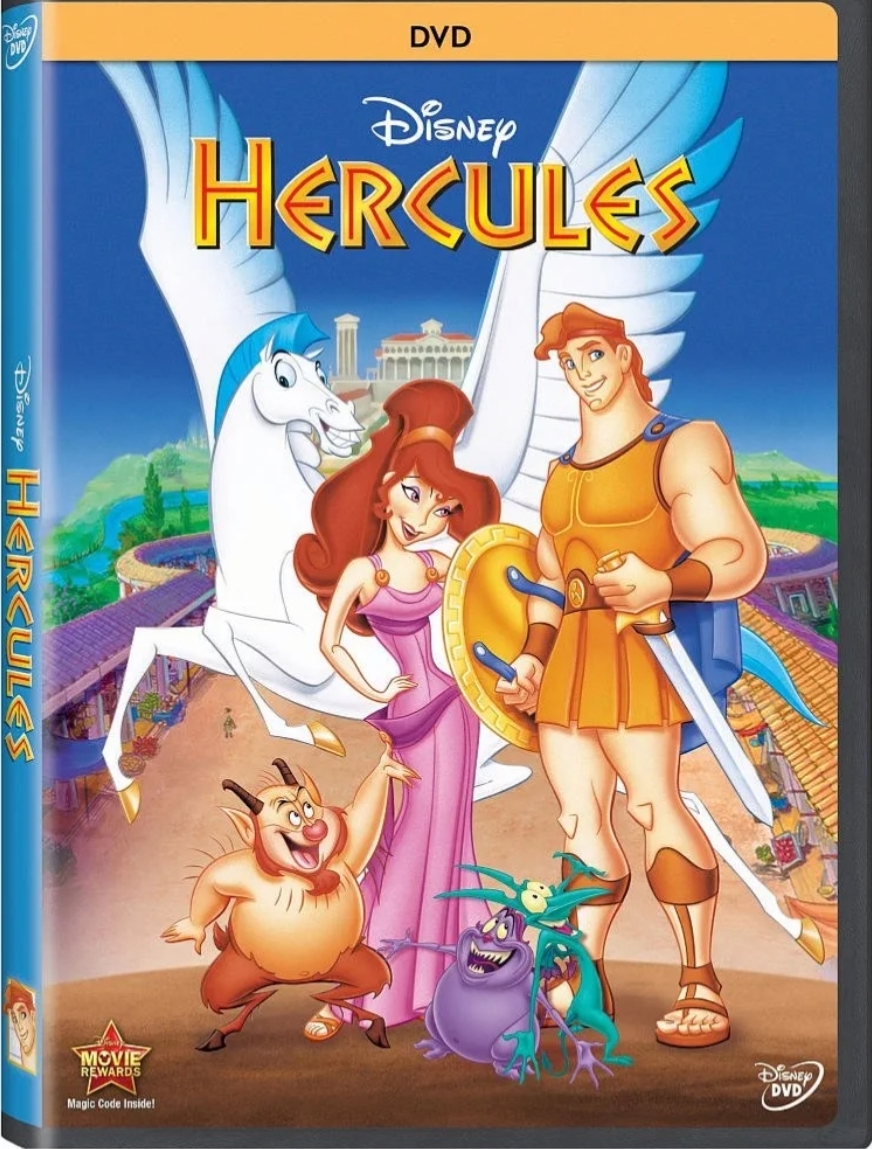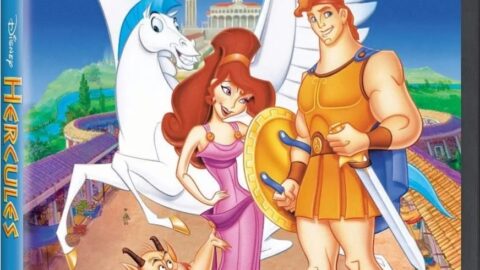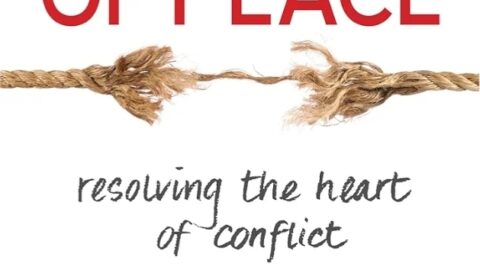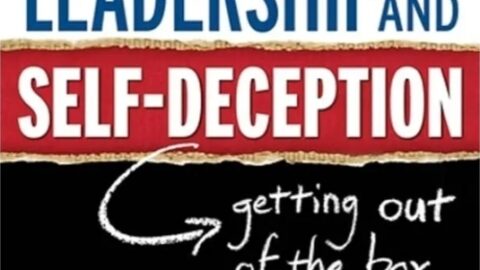Core Question: Are we made heroic by fame and power—or by love that keeps promises when it costs everything?
Tagline (spirit): “Strength without virtue is spectacle; strength with Agape is heroism.”
What is Agape?
In classical Greek, there are four common words for “love”:
- Agápē — sacrificial, unconditional love; wills the good of the other, even at personal cost.
- Érōs — romantic/erotic desire; attraction and longing.
- Philia — friendship/affection; comradeship shaped by shared virtue.
- Storgē — familial love; natural affection within family bonds.
Why Agape fits Hercules
- The film’s moral climax is agápē: Hercules willingly risks his life in the Styx to save Meg—love as self-gift, not self-gain.
- Earlier beats lean into érōs (Hercules–Meg attraction, charm, chemistry), but the story matures that desire into agápē (promise-keeping, self-sacrifice, choosing mortal life to be faithfully present).
- Phil and Hercules also model philia (mentor–student loyalty), and Hercules’ foster parents reflect storgē (steadfast, nurturing love).
Bottom line: Hercules moves back and forth between Érōs (romantic pull) and Agápē (sacrificial, unconditional will-to-the-good), and it crowns Agápē as the measure of true heroism.
Power, Belonging, and the Ache to “Go the Distance”
Moral Core: Identity vs. performance
Cast out of Olympus as an infant and raised by mortals, Hercules grows up super-strong but socially clumsy. He believes feats will earn him a place where he fits. The oracle at Zeus’s temple confirms his calling: become a “true hero.” He seeks training with Phil to convert raw power into recognition.
Lessons
- Value is intrinsic; performance is how we steward, not prove, worth.
- Exile often distorts identity into perfectionism (“If I do enough, I’ll belong”).
- Calling begins as desire—but must be tested by character, not clicks.
Philosophical Frame
- Existentialism: Identity chosen through commitments, not assigned by the crowd.
- Teleology (Aristotle): Strength has a telos: protecting the vulnerable.
Celebrity, Metrics, and the Economics of Applause
Moral Core: Counterfeit virtue and status tokens
With Phil’s coaching, Hercules becomes a sensation—slaying monsters and stacking endorsements. He confuses visibility with virtue. Meanwhile Hades, angling to depose Zeus, manipulates events and recruits Megara—bound by a past bargain—to exploit Hercules’s hunger for acclaim.
Lessons
- Popularity is symbolic capital; it cannot substitute for prudence, temperance, or truth.
- Technique without virtue amplifies vice at scale.
- Systems of fame incentivize optics over ethics.
Philosophical Frame
- Bourdieu’s symbolic capital: Trophies/titles as tradable reputation.
- Pragmatism: Outcomes expose false beliefs—celebrity ≠ character.
Love, Lies, and the Limits of Deals
Moral Core: Good intentions do not license manipulation
Hercules meets Meg—witty, wounded, and working for Hades under coercion. Their bond grows, but Hades weaponizes love: Hercules must surrender strength “for a day” to save Meg. He agrees; Hades unleashes the Titans. Meg later sacrifices herself to save him, breaking the bargain.
Lessons
- Deals that break integrity break freedom (you become owned by what you trade).
- Love without truth becomes control; truth without love becomes cruelty.
- Promise-keeping beats power-keeping.
Philosophical Frame
- Kantian ethics: Never use persons as mere means—even “for their own good.”
- Covenantal thinking: Vows create moral obligations stronger than utility.
Descent and the Revelation of True Heroism
Moral Core: Becoming good by doing good
With Meg dying, Hercules descends into the Styx to rescue her soul, risking his own life. This self-emptying act reveals “a true hero is measured by the strength of his heart,” not his biceps. His courage restores his godhood—paradoxically because he stopped grasping for it.
Lessons
- Sacrifice clarifies identity more than success does.
- Courage is love bearing cost, not swagger absorbing applause.
- Dying to status resurrects the self that can serve.
Philosophical Frame
- Aristotelian virtue ethics: Habit → character → right action under risk.
- Kenosis (self-giving love): Greatness as self-gift, not self-gain.
Choosing Earth Over Olympus
Moral Core: Vocation over validation
Offered a permanent return to Olympus, Hercules chooses mortal life with Meg—service over status, presence over pedestal. Power finds its proper end: guarding what you love.
Lessons
- Calling > reputation: The telos of gifts is the good of others.
- Belonging is received in relationships, not earned in arenas.
- Freedom is the capacity to choose the good, even when glitter beckons.
Philosophical Frame
- Personalism: Dignity resides in persons and love, not in titles or thrones.
- Eudaimonia: Flourishing comes from excellences of soul lived in community.
Symbols & What They Mean
| Symbol | Meaning |
|---|---|
| Medals/merch/adoration | Tokenized goodness; brittle social approval |
| Phil’s training gear | Technique that must be ordered by virtue |
| Hades’ contracts | Shortcuts that enslave; ends-without-means corruption |
| The Styx | The crucible where love proves itself under ultimate cost |
| Olympus vs. Thebes | Prestige vs. service; status vs. solidarity |
| Meg’s ribbon/rose | Wounded love becoming covenantal, not transactional |
Core Themes (with Real-World Applications)
Role ≠ Identity
Lesson: Job, platform, jersey ≠ moral worth.
Apply: Separate performance reviews from character reviews; honor unseen integrity.
Symbol vs. Substance
Lesson: Titles/metrics without service corrode.
Apply: Reward truth-telling, mentorship, and restraint—not just outcomes.
Deals as Domination
Lesson: “Win-win” that violates conscience mortgages freedom.
Apply: Make non-negotiables explicit; decline bargains that require secrecy or spin.
Truthful Love > Protective Lies
Lesson: Paternalism wounds; consent and clarity dignify.
Apply: In leadership/parenting, share risks and decide together.
Sacrifice and Vocation
Lesson: The right sacrifice aligns gifts to others’ flourishing.
Apply: Pre-commit to who you will protect when your metrics are at stake.
Character Arcs (as Moral Progress)
| Character | Starting Constraint | Transforming Moment | New Virtue |
|---|---|---|---|
| Hercules | Fame-hunger; equates applause with worth | Descent into the Styx for Meg | Agape, humility, courageous constancy |
| Meg | Cynicism born of betrayal; bound by a deal | Risks herself to save Hercules | Trust, truthful love |
| Phil | Disillusioned pragmatist trainer | Returns to coach for virtue, not just victory | Hope, fidelity as mentor |
| Hades | Manipulative will-to-power via contracts | Overthrown by the love he can’t compute | (Negative) Hubris unmasked |
Moral Psychology (Kohlberg)
- Stage 2 (Self-interest): “I’ll be a hero so I can get to Olympus.”
- Stage 3 (Approval): Celebrity montage—virtue-as-image.
- Stage 4 (Law/Order): Training, discipline, promise-keeping emerge.
- Stage 5 (Social contract): Defends Thebes because people matter, not optics.
- Stage 6 (Principle): Self-sacrifice in the Underworld—persons over personal gain.
A Practical “Hercules” Checklist (for people, orgs, communities)
- Audit the Applause: What metrics are substituting for mission?
- Non-Negotiables List: Write your “no-deal” clauses (truth, consent, fairness).
- Training with Telos: Tie skill programs to service outcomes, not brand lift.
- Consent Protocols: No decisions “for their good” without informed agency.
- Name Your Styx: What costly stand will you take when status is on the line?
Character Development Through Heart at Peace vs. Heart at War
Quick lens
- Heart at Peace: sees persons, tells the truth, sets humane boundaries, acts for others’ good (agápē).
- Heart at War: sees objects (obstacles/vehicles/scenery), manages optics, justifies self.
Hercules
Starting stance (War-adjacent—image proving):
- “Go the Distance” era = Need-to-Be-Seen-As hero. Others function as an audience for his identity quest (fame, merch, PR rescues).
Turning points → Peace:
- The Thebes sequence: Saving people matters more than applause; begins noticing real burdens instead of headlines.
- Deal fallout: When his bargain with Hades endangers others, he owns impact (not intent).
- Underworld sacrifice: Jumps into the Styx to save Meg at cost to self—pure agápē. Recognition becomes a by-product of love.
End stance (Peace): Heroism = willing another’s good, even unseen. He “goes the distance” for someone, not for status.
Megara
Starting stance (War—protective cynicism):
- Burned by love, she relates by self-protection and contract (Hades’ deal). People are threats or tools to survive.
Micro-shifts → Peace:
- Sees Phil and Hercules as persons, not marks; risks telling the truth; ultimately chooses Hercules’ good over her safety.
End stance (Peace): Trust replaces manipulation; love replaces leverage.
Phil (Philoctetes)
Starting stance (War-adjacent—Better-Than/Performative):
- Trainer chasing “the big one,” treats Herc as a vehicle for his legacy; quits when image/control crack.
Return → Peace:
- Comes back to name his wrongs, stand by Hercules, and coach for the person, not the poster. Truth over optics.
Hades
Fixed stance (War):
- Everyone is an instrument: Meg = pawn, Titans = weapons, Hercules = obstacle. Lives on blame, deals, and spectacle.
- No arc: War-heart can be witty and competent—and still corrode everything it touches.
Zeus & the Muses (moral chorus)
- Keep calling Hercules to sight: heroism as character + agápē, not PR. Their guidance frames the Peace path without coercion.
War→Peace Triggers (Scene beats you can call out)
- Thebes rescue gone wrong → fame vs. burden contrast appears.
- Hades’ bargain → intent/impact split; cost of self-justification.
- Meg endangered → love clarifies aim; boundary with benevolence.
- Styx plunge → decisive agápē; “true hero” revealed by sacrifice, not spectacle.
Table: How the Hearts Shape Arcs
| Character | Heart at War (early) | Heart at Peace (late) | Moral payoff |
|---|---|---|---|
| Hercules | Image-proving, audience-focused | Person-seeing, self-giving | True heroism = agápē |
| Meg | Contract, guarded manipulation | Trust, truthful risk | Love > leverage |
| Phil | Legacy optics, control | Loyalty, truth, service | Mentorship for persons |
| Hades | Instrumentalize all | — | War-heart consumes itself |
Teaching Moves (1–minute inserts)
- Ask: “Who is scenery to me in this scene—and what would it mean to see a person instead?”
- Practice: One unjustified good toward someone I’m using as a means.
- Line to remember: “A hero is measured by the size of his heart.”—read: by agápē, not applause.
Reflection Prompts
- Where am I chasing recognition instead of responsibility?
- Who have I treated as a vehicle for my goals this week? What would repair look like?
- What “Styx plunge” (costly good) is before me right now?
Final Reflection
Hercules teaches that heroism is not ascent to a glittering platform but descent into self-giving love. When Hercules stops chasing Olympus and starts guarding what—and who—he loves, his strength becomes just, his fame becomes irrelevant, and his identity finally settles. The film’s moral: you don’t earn belonging by dazzling the world; you embody it by keeping your promises when it hurts.







